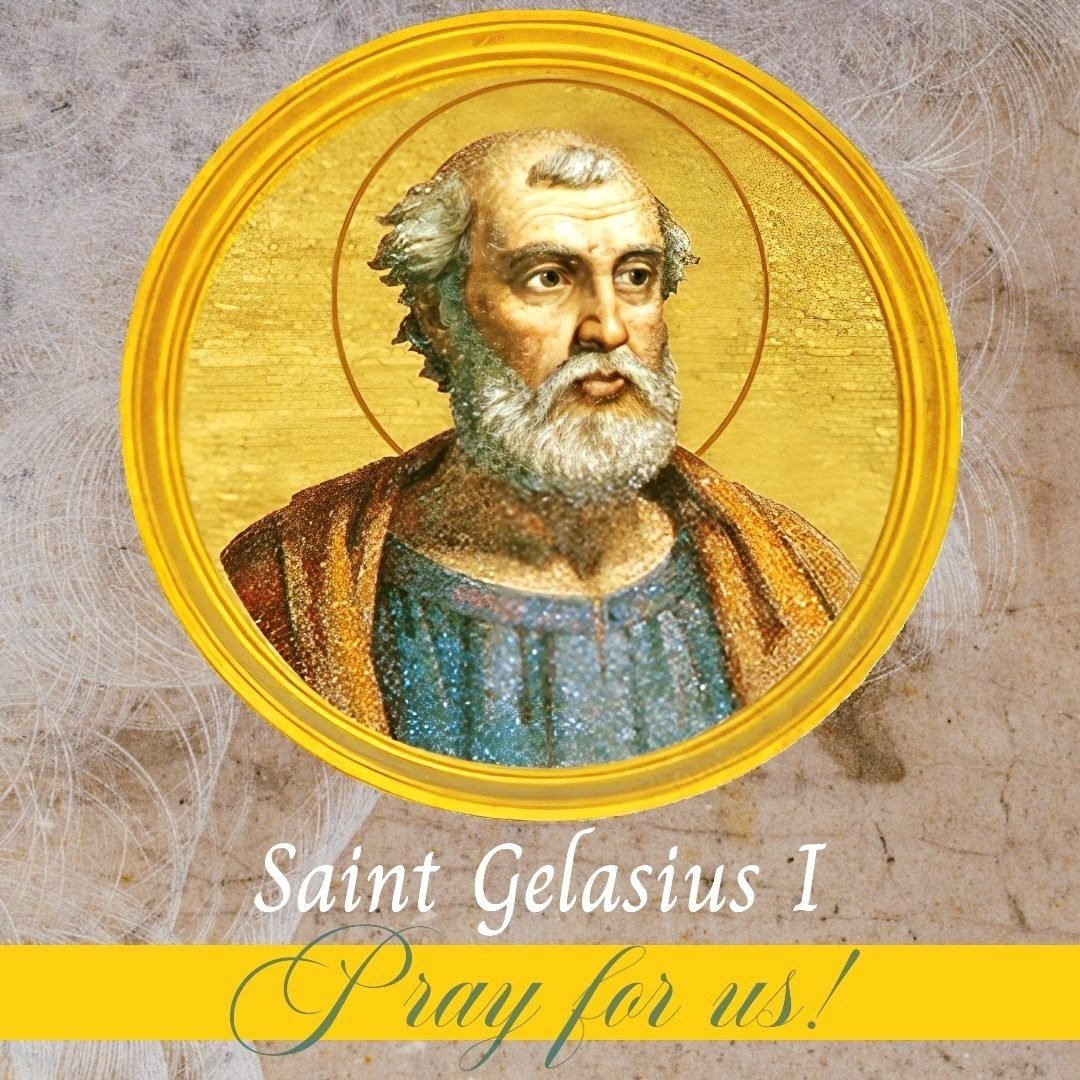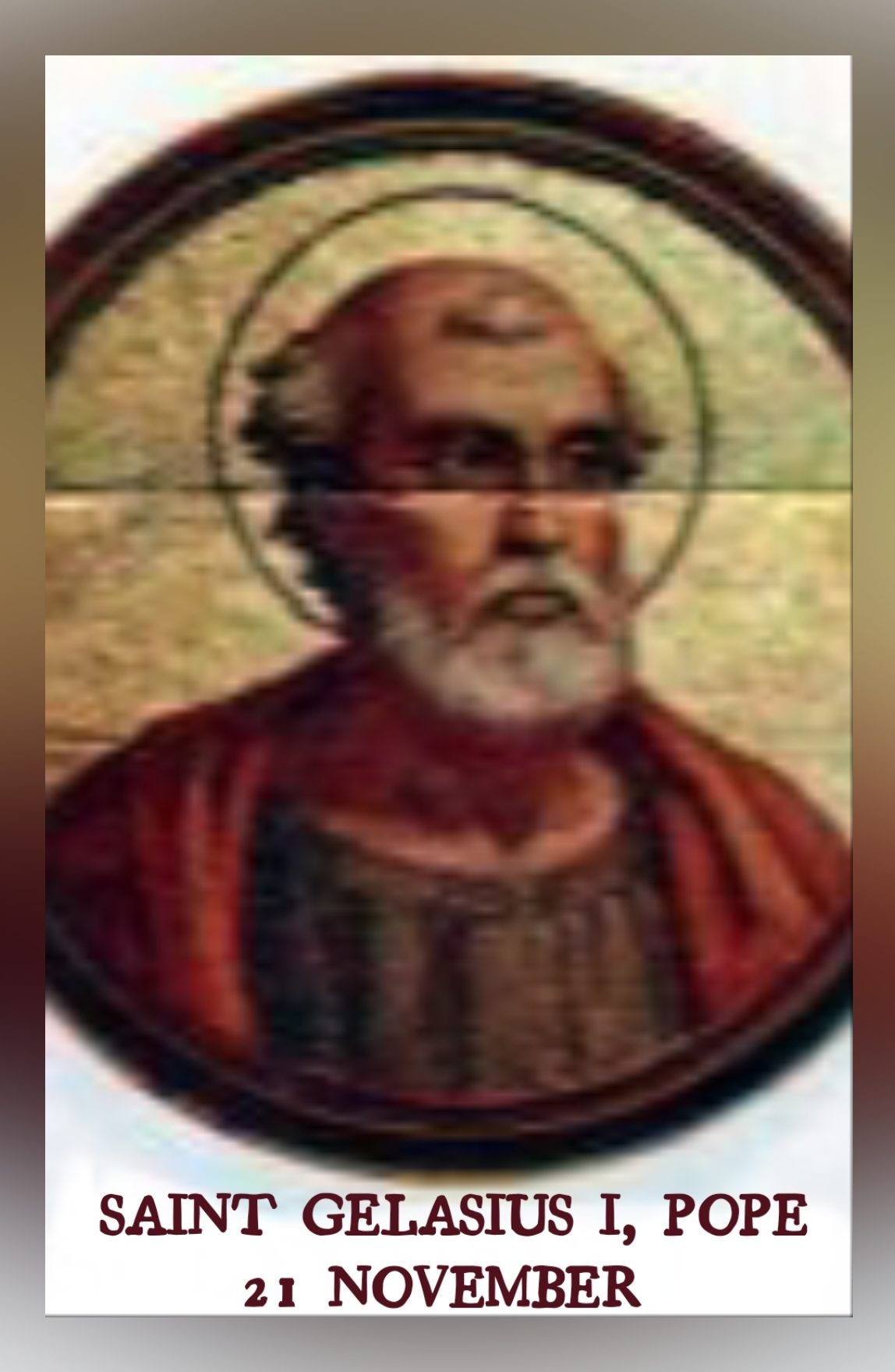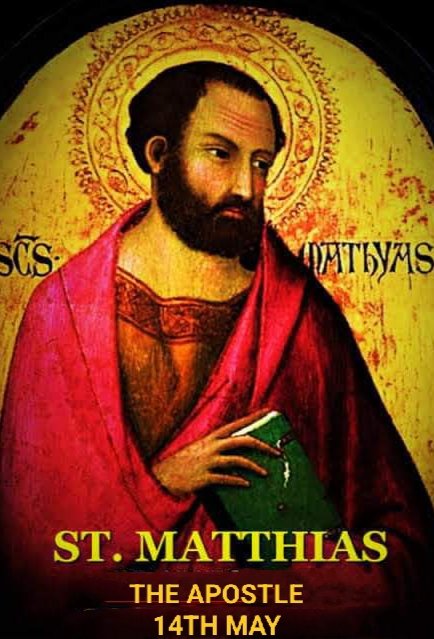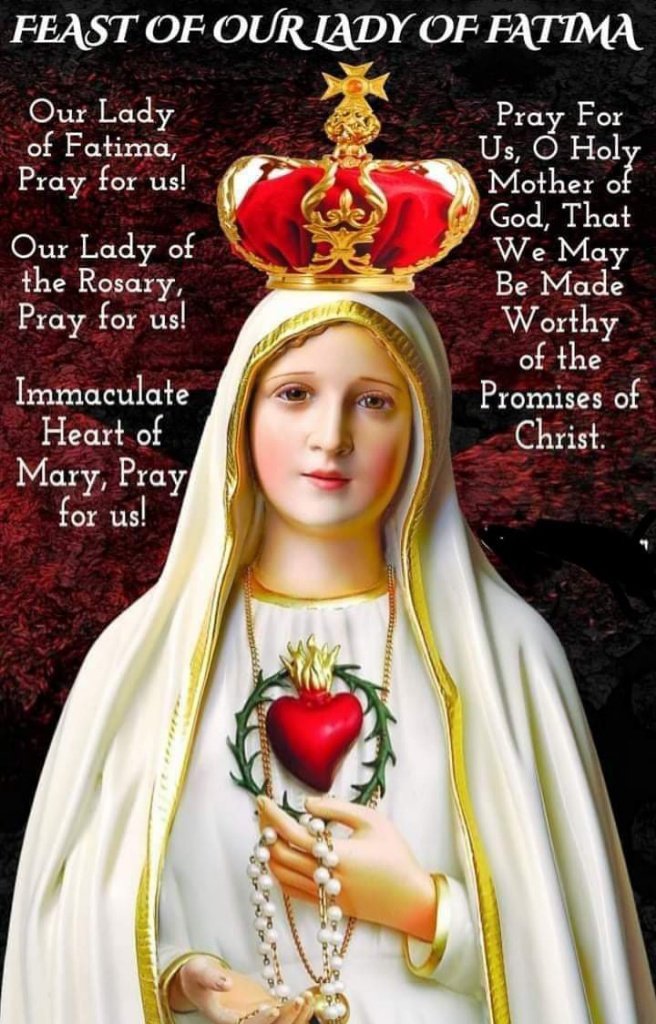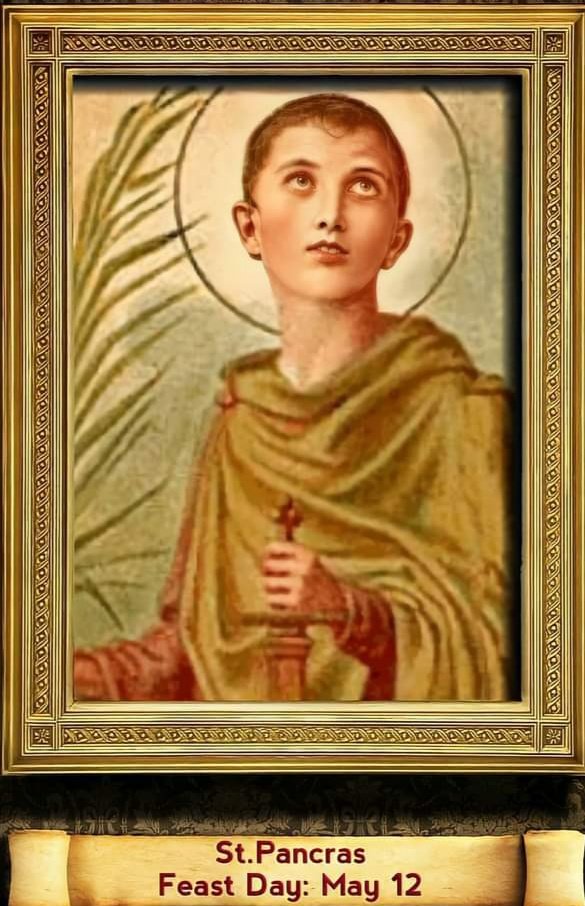MEMORIAL OF SAINT GELASIUS I, POPE 21 NOVEMBER
Pope Gelasius I was the bishop of Rome from 1 March 492 to his death on 19 November 496. Gelasius was a prolific author whose style placed him on the cusp between Late Antiquity and the Early Middle Ages. Some scholars have argued that his predecessor Felix III may have employed him to draft papal documents, although this is not certain.
During his pontificate he called for strict Catholic orthodoxy, more assertively demanded obedience to papal authority, and, consequently, increased the tension between the Western and Eastern Churches. Surprisingly, he also had cordial relations with the Ostrogoths, who were Arians (i.e. Non-trinitarian Christians), and therefore perceived as heretics from the perspective of Nicene Christians.
Gelasius inherited the conflicts of Pope Felix III with Eastern Roman Emperor Anastasius and the patriarch of Constantinople and exacerbated them by insisting on the obliteration of the name of the deceased Patriarch Acacius of Constantinople from the diptychs, in spite of every ecumenical gesture by the contemporaneous Patriarch Euphemius.
The split with the Emperor and the Patriarch of Constantinople was inevitable, from the Western view, because they adopted the Monophysite heresy of Jesus Christ having only a Divine nature. Gelasius authored the book De duabus in Christo naturis (On the dual nature of Christ), which described Catholic doctrine in the matter. Thus Gelasius, for all the conservative Latinity of his style of writing, was on the cusp of Late Antiquity and the Early Middle Ages.
During the Acacian schism, Gelasius advocated the primacy of the See of Rome over the universal Church, both East and West, and he presented this doctrine in terms that became the model for successive popes, who also claimed papal supremacy because of their succession to the papacy from the first supreme pontiff, Peter the Apostle.
In 494, Gelasius authored the very influential letter Duo sunt to Anastasius on the subject of the relation of Church and state, which letter had political impact for almost a millennium after.
After a brief yet dynamic ministry, Gelasius died on 19 November AD 496. His feast day is 21 November, the anniversary of his interment, not his death.
PRAYER
O God, your Pope St. Gelasius I, was a model of faithful stewardship and courageous leadership. His life inspires us to use our gifts for God’s glory and to multiply goodness in the world.
Today, we honor his legacy by living as faithful stewards of the faith in service of our brethren, in Jesus’ Name. Amen
